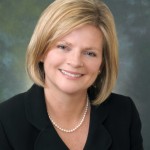What does it mean to be on the Board of Directors of your HOA? Fiduciary Duties (Part 1 of a series)
Board members are told that they have fiduciary duties to the community association, but what does that really mean? Fiduciary duties arise because the members of the association entrust a board member to act in the best interest of the association when handling the association’s business.
There are three components that are important to understand fiduciary duty. First, the Virginia Code, at § 13.1-870, imposes on directors a requirement that a director exercise her duties in good faith and in the best interest of the association. This requirement is the so-called “business judgment” rule. Second, Virginia case law imposes duty of care that requires a board member to act as a reasonable person would under similar circumstances. Third, Virginia case law imposes a duty of loyalty that requires a board member to put the association before any personal interest. These last two duties are referred to as “common law” duties.
The statutory “business judgment” rule found in the Virginia Code at § 13.1-870 applies to any acts taken as a director or any failure to take action. The business judgment rule protects the decisions a board member makes so long as the decision was made in good faith and in the best interests of the association. A board member must educate herself on the contents and effects of the governing documents of the association; inform herself about the business of the association; and participate in board meetings.
A board member is entitled to rely on rely on information, opinions, reports or statements, including financial statements and other financial data, if prepared or presented by:
- One or more officers or employees of the corporation whom the director believes, in good faith, to be reliable and competent in the matters presented;
- Legal counsel, public accountants, or other persons as to matters the director believes, in good faith, are within the person’s professional or expert competence; or
- A committee of the board of directors of which the director is not a member if the director believes, in good faith, that the committee merits confidence.
The common law duties of care and loyalty are applicable to the decisions a board member makes, and they are also applicable to a board member’s conduct.
The duty of care requires a board member to exercise the skill and care that a reasonable person would use under similar circumstances. This duty is also referred to as the ‘ordinary prudent person” standard. Failing to take action to prevent a loss, making decisions without obtaining information, encouraging or participating in unruly behavior at board or member meetings are examples of breaches of the duty of care.
The duty of loyalty requires a board member to place loyalty to the association above all other interest. Under Virginia law, the duty of loyalty has been referred to as “unbending.’ According to the Supreme Court of Virginia, “[a] director must act in the utmost good faith and this good faith forbids placing himself in a position where his individual interest clashes with his duty to [the] corporation.’ Engaging in self-dealing, failing to disclose material information to the board, failing to comply with the governing documents, and failing to enforce the governing documents are examples of breaches of the duty of loyalty.
In our next post on these issues, we will discuss a board member’s potential liability.

Susan Tarley


